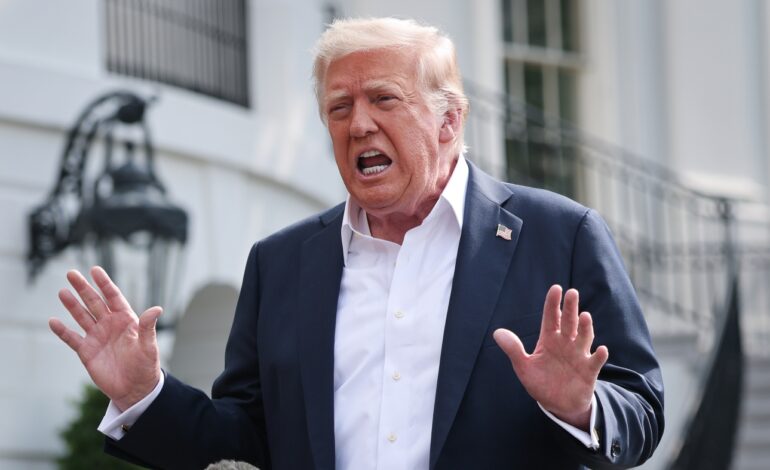Trump Administration Unveils Urgent AI Policies Targeting ‘Woke’ Tech

UPDATE: The Trump administration has just announced significant new policies aimed at regulating artificial intelligence (AI), intensifying its focus on perceived “woke” biases in technology. In a briefing earlier today, officials outlined plans to revise existing federal guidelines, directly impacting how AI systems are developed and deployed.
During a call with reporters, Michael Kratsios, head of the administration’s office of science and technology policy, emphasized the need for AI to reflect “truth and objectivity” rather than “top-down ideological bias.” The announcement is part of a broader strategy to realign federal contracts with tech firms that prioritize free speech and expression.
This shift in policy comes as the Trump administration prepares to issue an executive order later today, which is expected to dismantle key aspects of the Biden administration’s approach to AI, particularly regarding diversity, equity, and inclusion. The latest AI action plan indicates the government will only partner with companies that remove liberal biases from their AI frameworks.
As the administration escalates its culture war against tech companies, critics express concern over the implications of these policies. Neil Sahota, an AI advisor to the United Nations, stated, “The AI industry is deeply concerned about this situation,” highlighting the tension between government demands and the integrity of AI systems. He warned that firms may resort to creating “anti-woke” versions of their chatbots to align with federal requirements.
The urgency of this situation is underscored by the potential economic impact. With $200 million in federal contracts at stake, tech companies may feel pressured to comply with the new directives, risking their foundational principles in the process.
Concerns have also surfaced regarding the accuracy of AI outputs. While studies show that AI chatbots can sometimes deliver left-leaning responses, experts argue that this often stems from the way questions are framed. Chinasa Okolo, a fellow at the Brookings Institution, noted that accusations of bias often arise when a chatbot’s responses do not align with users’ political viewpoints.
The administration’s pivot towards “woke AI” as a rallying cry reflects a larger pattern of conservative critiques against Silicon Valley. Last year, backlash intensified after incidents involving Google’s Gemini image generator, which inaccurately represented historical figures. In response, Google vowed to correct its approach, but the incident fueled ongoing debates about bias in AI.
The new policies also mark a striking departure from the Biden administration’s focus on preventing bias in AI systems, which aimed to protect civil rights. This shift not only threatens the integrity of AI but also introduces a new layer of complexity in the ongoing culture wars.
As these developments unfold, the balance between technological advancement and political influence will be scrutinized. The AI industry faces an uncertain future, and how it navigates these new challenges could have profound implications for innovation and civil liberties.
In the coming days, all eyes will be on the Trump administration’s executive order and its subsequent impact on the tech industry. As the debate over the role of AI in society intensifies, stakeholders from all sides must prepare for a turbulent period ahead.






